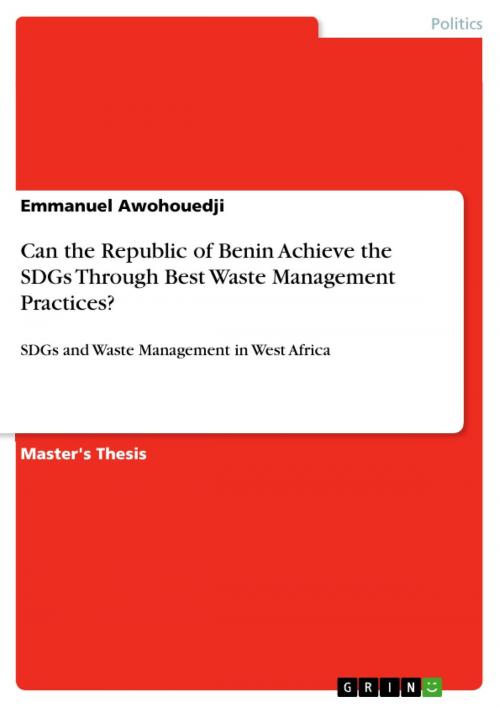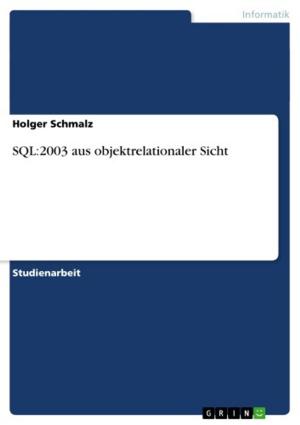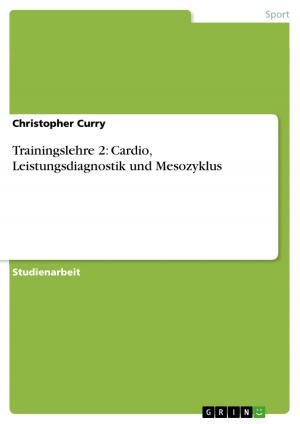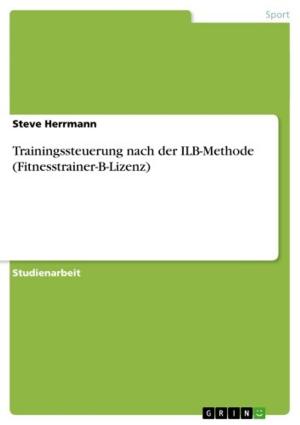Can the Republic of Benin Achieve the SDGs Through Best Waste Management Practices?
SDGs and Waste Management in West Africa
Nonfiction, Science & Nature, Science, Biological Sciences, Environmental Science| Author: | Emmanuel Awohouedji | ISBN: | 9783668582064 |
| Publisher: | GRIN Verlag | Publication: | November 28, 2017 |
| Imprint: | GRIN Verlag | Language: | English |
| Author: | Emmanuel Awohouedji |
| ISBN: | 9783668582064 |
| Publisher: | GRIN Verlag |
| Publication: | November 28, 2017 |
| Imprint: | GRIN Verlag |
| Language: | English |
Master's Thesis from the year 2017 in the subject Politics - International Politics - Environmental Policy, grade: A, The American University, Washington, DC (School of International Service), language: English, abstract: Sustainable development goals (SDGs) and households' solid waste management (HSWM) in the Republic of Benin, West Africa is the focus of this research. It explicitly investigates fermentable (organic) waste. Drawing on qualitative research, it argues that households' waste management could be a driver in the achievement of the SDGs. It briefly examines the international context of waste policy establishment and the framework of internationally supported waste project in the Republic of Benin (RB or Benin) in order to demonstrate the importance of socio-cultural factors in the waste sector. Through the lenses of urban political ecology and political ecology of waste theories, it explains how the perception and the treatment of waste in pre-colonial Benin might have changed over time, compared to postcolonial Benin. Inspired by one of the main challenges of the 21st century, achieving a worldwide sustainable development, the paper suggests a different approach of perceiving and treating waste in general and organic waste in particular. It argues that a community-based approach based on cooperatives could be the answer to the waste issue, but could also provide a canvas for the successful and inclusive achievement of the SDGs in Benin.
Master's Thesis from the year 2017 in the subject Politics - International Politics - Environmental Policy, grade: A, The American University, Washington, DC (School of International Service), language: English, abstract: Sustainable development goals (SDGs) and households' solid waste management (HSWM) in the Republic of Benin, West Africa is the focus of this research. It explicitly investigates fermentable (organic) waste. Drawing on qualitative research, it argues that households' waste management could be a driver in the achievement of the SDGs. It briefly examines the international context of waste policy establishment and the framework of internationally supported waste project in the Republic of Benin (RB or Benin) in order to demonstrate the importance of socio-cultural factors in the waste sector. Through the lenses of urban political ecology and political ecology of waste theories, it explains how the perception and the treatment of waste in pre-colonial Benin might have changed over time, compared to postcolonial Benin. Inspired by one of the main challenges of the 21st century, achieving a worldwide sustainable development, the paper suggests a different approach of perceiving and treating waste in general and organic waste in particular. It argues that a community-based approach based on cooperatives could be the answer to the waste issue, but could also provide a canvas for the successful and inclusive achievement of the SDGs in Benin.















